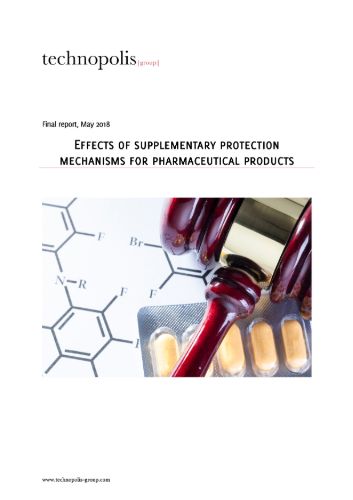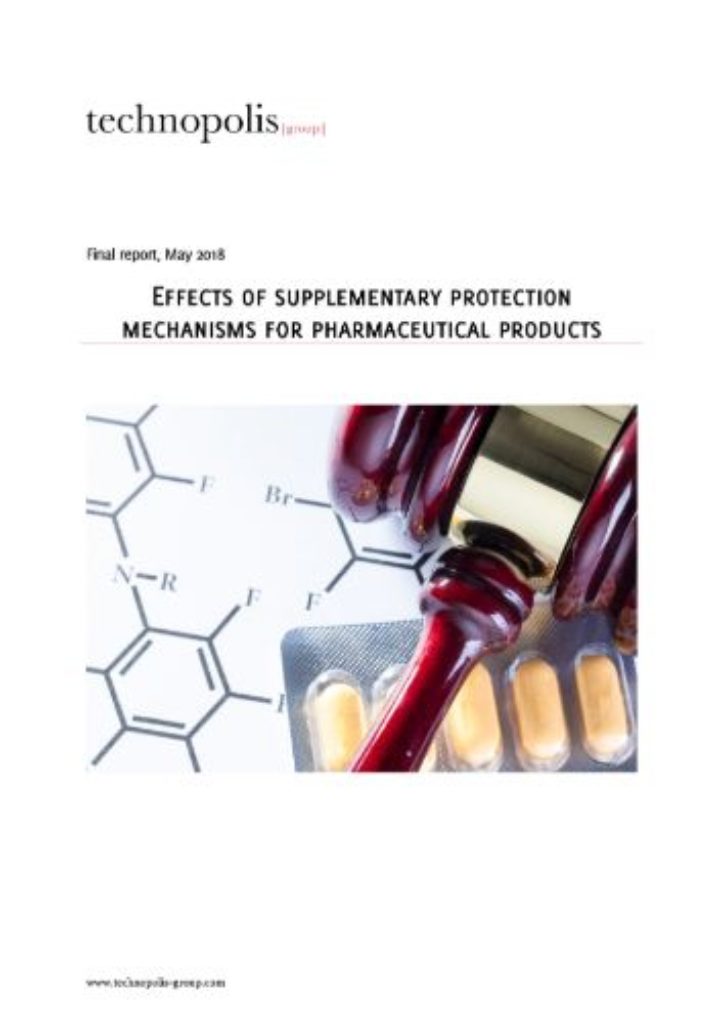Effects of supplementary protection mechanisms for pharmaceutical products
Publication date: 15 juni 2018 | Report language: EN
To stimulate the development of new medicines, various forms of ‘supplementary protections’ exist that give companies extended monopoly rights. This includes: Supplementary Protection Certificates (SPCs), which prolong the patent protection for medicinal products by up to five years; paediatric extensions to SPCs; regulatory protection in the form of data and market exclusivity; as well as regulatory protection in the form of the orphan drug regulation which intends to spur development for drugs to treat rare diseases.
Technopolis Group has prepared a report on the impacts of these intertwined mechanisms on pharmaceutical innovation and healthcare costs. This assessment is based on a review of available secondary data sources and literature; an interview programme with experts; a legal analysis on the four instruments; as well as seven case studies that illustrate the combined use of the instruments in real-life settings and the extent to which it was possible to manage patent life beyond the 20-year protection with the corresponding impacts. The study was prepared in collaboration with experts from the University of Liverpool and the University of Amsterdam. While the report has a focus on the Dutch market and was presented to the Dutch Parliament, the major discussion threads are applicable throughout Europe, given the highly international character of SPC/supplementary protection mechanisms. The study, while focused on the IP side, also ties into other cross-cutting analyses where Technopolis has been, in consortia, recently tasked by the European Commission to review the paediatric regulation and the orphan drug regulation


